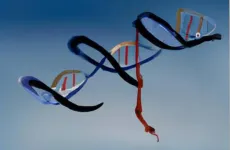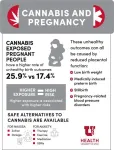(Press-News.org) NEW YORK, NY--Many Black Americans who are thought to have a high risk of developing kidney disease possess a protective genetic variant that nullifies the extra risk, a new study from Columbia researchers has found.
The study found that high-risk people who carry this variant have a risk of developing kidney disease much closer to that of the general population.
The findings will have an immediate impact on clinical practice, says study leader Simone Sanna-Cherchi, MD, associate professor of medicine at Columbia’s Vagelos College of Physicians and Surgeons.
“Physicians will need to take a closer look at their patients and determine if they should be reclassified based on this finding,” he says. “And if their reclassified patients do have kidney disease, they’ll need to look for another cause that explains their kidney problems.”
Based on the people included in the study, Sanna-Cherchi says between 4% and 10% of patients could be reclassified, although more studies are needed to make more precise estimates.
Risk reversal
Black Americans develop kidney disease at a rate five times higher than Americans with predominantly European ancestry.
Much of the increased risk comes from two variants in the APOL1 gene, G1 and G2, that are more common among Africans and people of African ancestry. The risk for kidney disease, especially focal segmental glomerulosclerosis (FSGS) that can lead to kidney failure, manifests in individuals carrying two of these variants at the same time (i.e. two G1, one G1 and one G2, or two G2).
About 13% of Black Americans carry one of these high-risk APOL1 combinations, which create proteins that tend to damage kidney cells.
But only a fraction of high-risk APOL1 carriers eventually develop kidney disease, suggesting that many people carry other genetic modifiers that affect the risk.
The new study shows that one such modifier is hidden within the APOL1 gene itself. The researchers found that people who carry a high-risk APOL1 genotype containing the G2 variant (i.e. G1/G2 or G2/2) that also contains a second variant called N264K have much lower risk of developing kidney disease.
“Individuals with both of these variants have about one-eighth the risk of kidney disease than those with just APOL1 G2, virtually reducing the risk for FSGS to that of individuals without the APOL1 high-risk genotypes,” Sanna-Cherchi says.
The finding is consistent with previous research from Sanna-Cherchi’s collaborators, who found that the N264K variant protects kidney cells grown in the laboratory from overactive APOL1 proteins created by the high-risk variants.
Implications for kidney transplant, new drugs
Because people who carry G1 and G2 variants have such a high risk of developing kidney disease, kidney donations from such individuals are often discouraged, because on one hand, an APOL1 high-risk donor would have a high risk of kidney failure after kidney donation and, on the other hand, the recipient of a high-risk kidney would have a shorter graft survival.
“This finding could expand the pool of potential kidney donors,” Sanna-Cherchi says. “Now we can move APOL1 high-risk G2 carriers to the low-risk donor category if they also test positive for N264K.”
The presence of N264K also has major implications for APOL1-specific drugs that are currently in development. The new finding adds to evidence that suggests reducing the activity of APOL1 would be an effective way to prevent or treat APOL1-mediated kidney disease.
Taking N264K into account also will be critical in testing new APOL1 drugs.
“Individuals with N264K should not be included in the intervention arm of these clinical trials, since these people do not have overactive APOL1 proteins or a high risk of APOL1-related kidney disease,” Sanna-Cherchi says. “Our findings should allow for a more accurate study design.”
Next steps
Other hidden modifiers probably exist that reduce or enhance the risk of developing kidney disease among APOL1 high-risk carriers, Sanna-Cherchi says.
Because N264K is never found in individuals with the G1/G1 genotype, genetic modifiers specific to G1 may exist and could be found with genotype-specific APOL1 studies that require larger sample sizes.
More information
The study is titled “Strong protective effect of the APOL1 p.N264K variant against G2-associated focal segmental glomerulosclerosis and kidney disease.” The paper was published online Nov. 30 in Nature Communications.
All Columbia authors: Yask Gupta, Atlas Khan, Chen Wang, Juntao Ke, Gina Jin, Benjamin Wooden, Tze Y. Lim, Gerald B. Appel, Lili Liu, Andrew Bomback, Maddalena Marasa, Ning Shang, David J. Cohen, Russell J. Crew, Pietro Canetta, Jai Radhakrishnan, Jeremiah Martino, Qingxue Liu, Wendy K. Chung, Chunhua Weng, Yilu Fang, Sumit Mohan, Maya Rao, Geoffrey K. Dube, Daniel L. Bivona, Miguel Verbitsky, Dominick Santoriello, Ibrahim Batal, Fangming Lin, Vivette D. D’Agati, David B. Goldstein, Ali G. Gharavi, Krzysztof Kiryluk, and Simone Sanna-Cherchi.
###
Columbia University Irving Medical Center provides international leadership in basic, preclinical, and clinical research; medical and health sciences education; and patient care. The medical center trains future leaders and includes the dedicated work of many physicians, scientists, public health professionals, dentists, and nurses at the Vagelos College of Physicians and Surgeons, the Mailman School of Public Health, the College of Dental Medicine, the School of Nursing, the biomedical departments of the Graduate School of Arts and Sciences, and allied research centers and institutions. Columbia University Irving Medical Center is home to the largest medical research enterprise in New York City and State and one of the largest faculty medical practices in the Northeast. For more information, visit cuimc.columbia.edu or columbiadoctors.org.
END
Genetic safeguard protects some considered high risk for kidney disease
2023-12-12
ELSE PRESS RELEASES FROM THIS DATE:
Liquid biopsy predicts immunotherapy response and toxicity in patients with advanced lung cancer
2023-12-12
FOR IMMEDIATE RELEASE
Using a “liquid biopsy” to study genetic material from tumors shed into the bloodstream together with immune cells could help clinicians predict which patients with advanced lung cancers are responding to immunotherapies and which patients may develop immune-related side effects several months later, according to research directed by investigators at the Johns Hopkins Kimmel Cancer Center, the Bloomberg~Kimmel Institute for Cancer Immunotherapy and Allegheny Health Network Cancer Institute in Pittsburgh.
By monitoring changes in circulating tumor DNA (ctDNA) among 30 patients treated with immunotherapies for metastatic non-small cell lung cancers, ...
Heavy metals in our food are most dangerous for kids
2023-12-12
WASHINGTON, DC, 2023, December 12, 2023 – The problem of foodborne metal contamination has taken on new urgency, thanks in part to a 2021 US Congressional Report detailing high levels of metals found in infant food pulled off grocery shelves. (More recently, high levels of lead were discovered in children’s fruit puree pouches.) Now, two new studies provide information on the correlation between exposure to heavy metals in food and the risk of cancers and other serious health risks. The findings will be presented ...
Artificial intelligence systems excel at imitation, but not innovation
2023-12-12
Artificial intelligence (AI) systems are often depicted as sentient agents poised to overshadow the human mind. But AI lacks the crucial human ability of innovation, researchers at the University of California, Berkeley have found.
While children and adults alike can solve problems by finding novel uses for everyday objects, AI systems often lack the ability to view tools in a new way, according to findings published according to findings published in Perspectives on Psychological Science, a journal of ...
MSK’s Omar Abdel-Wahab honored for research targeting blood cancers
2023-12-12
Physician-scientist Omar Abdel-Wahab, MD, is being honored at the 2023 American Society of Hematology (ASH) Annual Meeting with the William Dameshek Prize, which recognizes individuals who have made outstanding contributions to the field of hematology. The award will be presented December 12.
Dr. Abdel-Wahab, who chairs the Molecular Pharmacology Program at Memorial Sloan Kettering Cancer Center (MSK), was selected for his “trailblazing research” characterizing the genetic mutations that drive blood ...
Black individuals more likely to experience inequities in early diagnosis and treatment of Lyme disease, new research shows
2023-12-12
A new study out of the Johns Hopkins Medicine Lyme Disease Research Center has revealed disparities in the diagnosis and treatment of Lyme disease between Black and White patients with the condition. Researchers say the data, which draws on participants’ medical histories, whether from Johns Hopkins Medicine or other institutions, highlights issues in the nation’s medical education on Lyme disease.
In the full article, published December 12 in JAMA Network Open, researchers say that Black patients were more likely to have advanced stages of Lyme disease when clinically diagnosed and also experience a longer time before receiving antibiotic treatment for the condition.
Lyme ...
National Academy of Inventors honors SMU professor J.-C. Chiao as fellow
2023-12-12
DALLAS (SMU) J.-C. Chiao, the Mary and Richard Templeton Centennial Chair and professor in the Electrical and Computer Engineering Department in the SMU Lyle School of Engineering, has been named a fellow of the National Academy of Inventors (NAI).
Election as an NAI fellow is the highest professional distinction awarded to academic inventors. The NAI Fellows Program highlights academic inventors who have demonstrated a spirit of innovation in creating or facilitating outstanding inventions that have made a tangible impact on quality of life, economic development and the welfare of society.
Chiao, one of 162 inventors selected for the ...
Study paves way for development of advanced quantum networks
2023-12-12
The ability to transmit information coherently in the band of the electromagnetic spectrum from microwave to infrared is vitally important to the development of the advanced quantum networks used in computing and communications.
A study conducted by researchers at the State University of Campinas (UNICAMP) in Brazil, in collaboration with colleagues at ETH Zurich in Switzerland and TU Delft in the Netherlands, focused on the use of nanometric optomechanical cavities for this purpose. These nanoscale resonators promote interaction between high-frequency ...
Sanford Burnham Prebys elects Lori Moore to its Board of Trustees
2023-12-12
Sanford Burnham Prebys today announced that Lori Moore will join the Institute’s Board of Trustees.
“With many years in health care, both as a provider and a leader, Lori brings a welcomed depth and breadth of experience,” says David A. Brenner, president and CEO of Sanford Burnham Prebys. “Her perspectives will be much valued as the Institute advances its message of translating science into health.”
Moore is a registered nurse, a fifth-generation San Diegan and a member of the Cushman family, whose philanthropic endeavors span decades. She serves as vice president of The Cushman Foundation, which supports a wide range of community ...
New study explores ways to reduce inflammation and preserve bone health with prunes
2023-12-12
A new study published in The Journal of Nutrition shows daily consumption of prunes may reduce inflammation markers connected to bone signaling pathways and reduce the effects of bone loss among postmenopausal women.
“Bone loss is a significant issue impacting more than 50% of women over the age of 50, and there is no cure,” said Principal Investigator Mary Jane De Souza, PhD, Professor, Department of Kinesiology, Pennsylvania State University. “While medications and hormone therapies are available, they often require lifelong management and come with risks. It’s ...
Cannabis exposure linked to 1.5 times higher risk of unhealthy pregnancy outcomes
2023-12-12
SALT LAKE CITY - In the past ten years, the percentage of Americans who use medical marijuana has more than doubled as state-level legalization becomes increasingly common. But despite its prevalence as a medication, the full health effects of cannabis remain unknown, especially for specific populations—such as pregnant people—that might be especially at risk of health complications.
Now, in a large study of more than 9,000 pregnant people from across the U.S., researchers at University of Utah Health have found that cannabis ...







